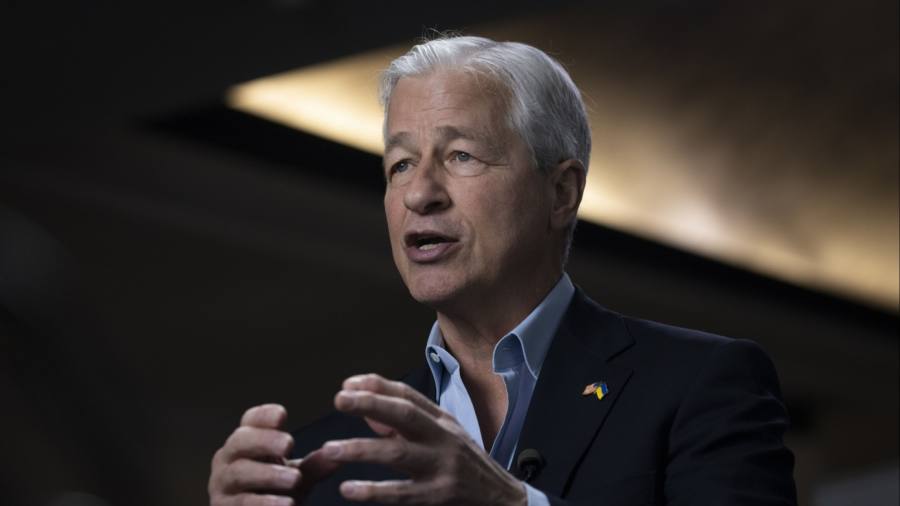The influential proxy adviser Institutional Shareholder Services has performed a rare U-turn and is recommending JPMorgan Chase shareholders support the bank’s pay plan for top executives including Jamie Dimon.
ISS spearheaded resistance to the bank’s pay policies in 2022 and last week advised that investors oppose them again during a “say on pay” vote at the lender’s annual meeting on Tuesday.
However, ISS told clients this week it had decided to switch its recommendation after using erroneous data when benchmarking the bank’s pay against peers. The change was first reported by Bloomberg.
In a letter to ISS last week, JPMorgan argued ISS had incorrectly analysed pay data from private equity firm Blackstone, which triggered the negative recommendation for JPMorgan.
In its updated pay recommendation, ISS said there was now a reasonable alignment between JPMorgan’s pay and the bank’s performance, but added it still had concerns over how bonuses were calculated and disclosed.
JPMorgan, the largest US bank by assets, paid Dimon $34.5mn for 2022, unchanged from the prior year after the lender reported record revenues of $128.7bn and net income of $37.7bn.
JPMorgan declined to comment.
JPMorgan shareholders last year voted against the pay plans for the bank’s management, primarily due to one-off awards given to Dimon, its longtime chief executive, and president Daniel Pinto. Vanguard, JPMorgan’s largest shareholder, joined the revolt.
The vote was non-binding but JPMorgan subsequently said it would not give Dimon special awards in the future.
Over the years, Dimon has criticised what he views as “lazy” shareholders who follow recommendations by ISS and Glass Lewis, which provide voting advice to investors in publicly traded companies. Last year, Dimon told shareholders they should “do [their] own homework”.
In its proxy statement to shareholders ahead of the annual meeting, JPMorgan disclosed that Pinto was paid $28.5mn and asset and wealth management boss Mary Erdoes earned $25.5mn. Marianne Lake and Jennifer Piepszak, co-CEOs of the bank’s consumer and community banking division and potential successors to Dimon, each earned $17.5mn.
Shareholders have generally signed off on packages for top bank executives this year, with many lenders receiving higher approval ratings during “say on pay” than they did in 2022.
A notable exception was Bank of America, where the percentage of shareholders voting at the annual shareholder meeting last month dropped to 69 per cent from 95 per cent a year earlier.
Additional reporting by Stephen Gandel
Read the full article here




